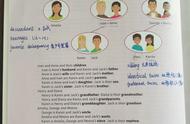①And yet the psychological community has been reticent to speak up too vocally against it.
然而,心理学界却一直缄默不语,并未公开对其进行大肆谴责。
- and yet 和 yet 为连词,指「然而」,表示转折。
- reticent [ˈretɪsənt] 为形容词,指「寡言少语的,不愿交流的」(unwilling to tell people about things)。比如:He was reticent about his past. 他对自己的过去闭口不谈。
- reticence [ˈretɪsns] 为不可数名词,指「沉默寡言」。
- speak up 表示「大胆表达,大声说」(to speak loudly and distinctly)
举个例子:领导者应该允许员工大胆表达以激发创新力。
Leaders should allow employees to speak up to spark innovation.
- vocally [ˈvəʊkəli] 为副词,指「大声地,直言不讳地」。
- vocal [ˈvəʊkəl] 形容词,指「大声表达的;直言不讳的」。
- vocal 还可表示「声乐的」,前不久刚举行的2022格莱美中的Best Pop Vocal Album,便指「最佳流行演唱专辑」。
- against [əˈɡeɪnst] 为介词,指「反对」。文中speak up too vocally against it 便指「大声极力反对」。
- 而介词for 表示「支持」。比如:Are you for or against the proposal? 你支持还是反对这个建议?
②The fact is, many psychology professors do lucrative side work as organizational consultants.
事实上,许多心理学教授都兼任企业的组织顾问,并且这份工作收入颇丰。
- lucrative 表示「利润丰厚的」,比如:He inherited a lucrative business from his father.他从父亲那里继承了一家赚大钱的公司。
- 近义词还有:profitable(盈利的),money-making (挣钱的),profit-making (盈利的),remunerative (赚钱多的,报酬高的)。
- 反义词为:loss-making 亏损的。
- side work 为不可数名词,指「兼职,副业」, 也可写作side jobs。do side work / jobs 指「做兼职」。
- organizational [ˌɔːɡənaɪˈzeɪʃənl] 为形容词,指「组织的,机构的」,文中organizational consultant 便表示「为相关组织提供咨询服务的顾问」。
- 其动词和名词形式分别为:organize, organization。
- consultant [kənˈsʌltənt] 为名词, 指「顾问」。
- consult [kənˈsʌlt] 为动词,指「咨询,请教」,惯用搭配为consult sb (about sth),consult (with) sb。
- 比如:I need to consult (with) my lawyer. 我需要咨询一下我的律师。
- 再比如:consulting firm / consultancy 表示「咨询公司」。
③And as taboo as it is to praise Myers-Briggs in U.S. academia, it’s equally taboo to disparage it in corporate America.
因此,正如无法在美国学术界公开为MBTI站台一样,这些教授也无法在美国企业界对其大肆诋毁。
- taboo [təˈbuː] 文中作形容词,指「禁忌的,忌讳的」。作名词,指「禁忌」。
- 举个例子:Cancer is a taboo subject. 癌症是忌讳的话题。
- praise 作动词,指「表扬,赞扬」,惯用搭配为praise sb for sth,praise sb as sth。
- 近义词还有compliment sb on sth 表示「称赞...,赞美...」。注意介词应该用on。
- 举一个电影《傲慢与偏见》里的例子:
- Several people, her Ladyship included, have complimented me on my lightness of foot.
- academia [ˌækəˈdiːmiə] 为不可数名词,指「学术界」。
- disparage [dɪˈspærɪdʒ] 动词,指「贬低,轻视」(to suggest that sb/sth is not important or valuable)。
我们来看一个美剧《绝望的主妇》里的例子: - You will not disparage versace.
- disparaging [dɪˈspærɪdʒɪŋ] 为形容词,指「贬低的,抨击的」。比如:disparaging remarks / comments 贬低的评论。
- 电影《爆炸新闻》里就用到了这个词:
- Your Twitter account has several disparaging comments about women's looks.
- 与disparage相近的词还有:belittle, degrade, denigrate等等。
- BBC还用到了一个词:debunk。
- debunk 动词,指「指出…的错误;揭穿…地吹嘘或虚假」。
- corporate [ˈkɔrpərət] 为形容词,指「公司的」,文中corporate America 指「美国企业界」,与U.S. academia美国学术界对应。
- corporation [ˌkɔːpəˈreɪʃn] 为名词,指「大公司」。
# 复盘总结
最后,我们来总结一下从这篇文章学到的语言点:
话题词汇
做MBTI测试:take the MBTI
心理测试,心理评估:psychological assessments
心理学学术界:the academic psychological community
伪科学:pseudo-science
将...斥为伪科学:dismiss sth as pseudo-science
高频词组
很可能...:Chances are (that) ...
大约,估计:roughly 数字 名词,an estimated 数字 名词
对...有深远影响:have far-reaching implications /consequences / effects on sth
催生...:spawn sth
迟迟不肯做某事:be slow to do sth / be slow (in) doing sth
兼职:do side work / jobs
贬低,轻视:disparage sth
表扬,称赞:praise sb for sth, compliment sb on sth
,













